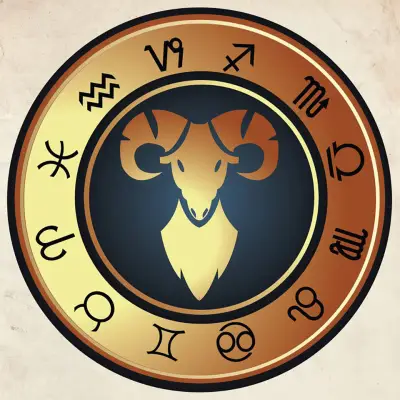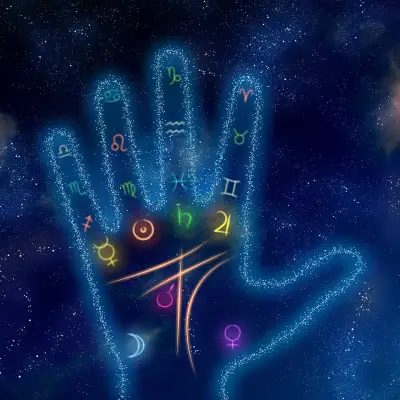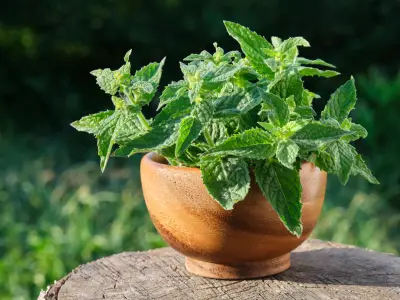Sheep have been important symbols for thousands of years, quietly weaving their way through mythologies, religious texts, and cultural traditions. These gentle creatures often represent peace, purity, vulnerability, and community—but there's much more to uncover.
In this post, you’ll learn what sheep symbolise across various cultures and belief systems, what it might mean if a sheep appears to you, and why this animal could be an important spiritual guide.
Jump to:
- The Symbolism of a Sheep
- Sheep in Different Cultures
- Is it Good or Bad Luck to See a Sheep?
- What Does It Mean When Sheep Appear Near Your Home?
- Sheep Numbers and Their Spiritual Meanings
- Sheep Colours and Their Spiritual Meanings
- How to Know if a Sheep is Your Spirit Animal
- Frequently Asked Questions About Sheep Symbolism
- Study Spirit Animals and Totems for £29
Recommended for you!
Best SellersThe Symbolism of a Sheep
Sheep symbolism is layered with meaning. At first glance, sheep appear to be simple, quiet animals—but spiritually, they represent a wealth of qualities and life lessons.
- Peace and Innocence: One of the most well-known associations is that of peace and innocence. Sheep and lambs are often linked with purity, particularly in spiritual and religious contexts. In Christianity, lamb symbolism is connected to sacrifice, redemption, and divine love.
- Vulnerability and Trust: Sheep are highly social animals that rely on their flock and shepherd for protection. This gives rise to their symbolic link with vulnerability, trust, and dependence. The spiritual meaning of a sheep may ask you to examine your own relationships: are you putting your trust in the right people, or is it time to take more control?
- Community and Belonging: Another layer of sheep symbolism is about community. Sheep thrive in groups and value connection. In spiritual terms, they can represent the importance of relationships, family, and shared purpose. If you’ve felt isolated or out of sync, sheep may be a sign to reconnect.
Sheep in Different Cultures
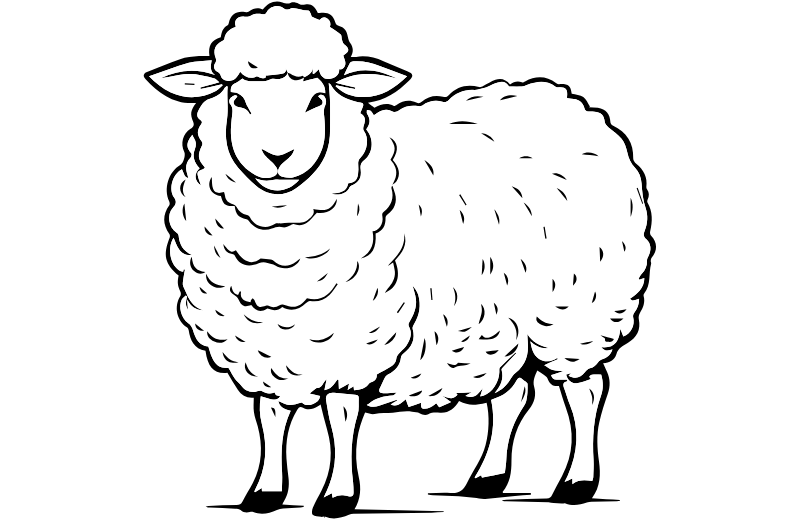
Across cultures and centuries, sheep have quietly carried rich symbolic meaning—appearing in sacred texts, spiritual traditions, and mythologies as gentle messengers of deeper truths.
Christianity – Innocence, Sacrifice, and Spiritual Guidance
In Christian teachings, sheep are among the most enduring and powerful symbols. Jesus is referred to as the “Lamb of God,” representing innocence, humility, and divine sacrifice. The lamb’s purity makes it a perfect symbol of spiritual renewal and redemption. Believers are often described as sheep, part of a flock watched over by a caring shepherd—this reflects trust in divine guidance, protection, and the idea of being spiritually nurtured. The ewe also plays a quiet but symbolic role, linked with themes of motherhood and care.
Chinese Zodiac – Yin Energy and Compassion
In Chinese culture, the sheep (or goat) is one of the twelve zodiac animals and is closely associated with yin energy—gentle, nurturing, and inwardly focused. People born in the Year of the Sheep are thought to be kind-hearted, calm, and creative. The sheep’s presence in the zodiac represents peace, artistic expression, and a strong sense of empathy, all qualities that align with spiritual sensitivity and emotional intelligence.
Celtic and Pagan Traditions – Fertility and Seasonal Renewal
In Celtic spirituality and early Pagan belief systems, sheep were deeply connected to the land, the seasons, and the cycle of life. Their presence in spring, especially lambs, marked the return of fertility and new beginnings. Ewe symbolism here is linked to nurturing, abundance, and the sacred rhythm of birth and growth. Sheep were often part of seasonal festivals celebrating renewal and the turning of the year.
Islamic Tradition – Devotion and Obedience
In Islam, the sheep also holds spiritual significance. During Eid al-Adha, sheep (or other livestock) are sacrificed in remembrance of Ibrahim’s devotion and willingness to follow divine instruction. The ritual is about faith, obedience, and trust in a higher plan—qualities that echo the nature of the sheep itself.
Hinduism – Nourishment and Sacred Life
While not as symbolically prominent as in other traditions, sheep in Hinduism are associated with nourishment, provision, and the sacred relationship between humans and animals. The cow is the more widely recognised sacred animal, but sheep are still valued as providers of wool and milk, playing a supportive role in spiritual and daily life.
Is it Good or Bad Luck to See a Sheep?
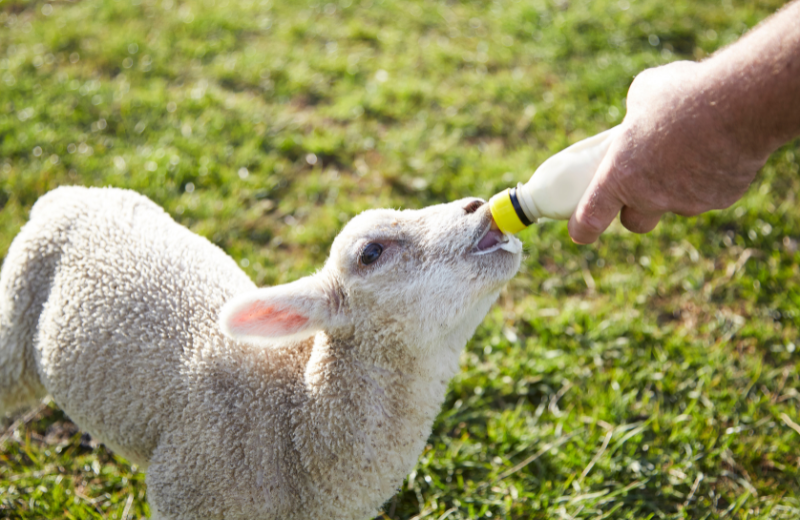
Generally, sheep are considered lucky animals. Their presence is often thought to bring peace, abundance, and spiritual messages. Seeing a sheep may signal a period of calm or suggest that it’s time to trust in the process.
However, in some traditions, a black sheep may carry different implications. The meaning of black sheep often points to someone who doesn’t conform, who feels left out or misunderstood. In a spiritual sense, being a black sheep might suggest a need for self-acceptance and strength in your uniqueness.
What Does It Mean When Sheep Appear Near Your Home?
Seeing sheep near your home—either physically or in dreams or visions—can carry spiritual significance. It could mean that you're entering a time of calm and stability, especially in your family or community life.
Alternatively, it may suggest you're being called to pay more attention to your emotional wellbeing. If you're feeling lost, sheep might appear as a reminder to seek guidance and support from others.
Sheep Numbers and Their Spiritual Meanings
In some traditions, the number of sheep you see can carry meaning:
- One sheep may symbolise solitude and self-reflection.
- A pair of sheep could represent partnership or harmony in relationships.
- A large flock might symbolise abundance, support, and connection.
This interpretation also ties into numerology, where repeated encounters with sheep might align with specific angel numbers or life themes related to peace, compassion, and unity.
Sheep Colours and Their Spiritual Meanings
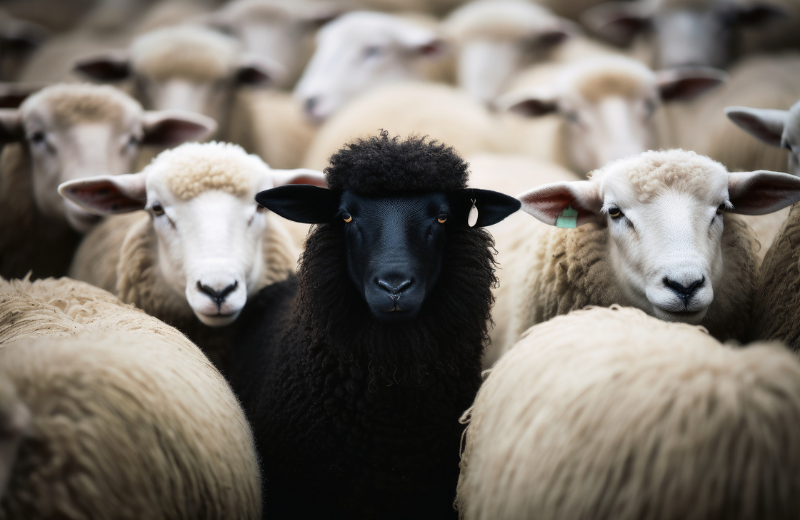
The colour of the sheep you see can influence the message it carries, with each shade offering a unique spiritual insight:
- White sheep: Symbolise purity, spiritual clarity, and innocence. They may appear when you're being encouraged to connect with your higher self or return to your core values.
- Black sheep: Represent the parts of you that feel misunderstood, different, or excluded. They invite you to embrace your uniqueness and honour your individuality.
- Black and white sheep together: Symbolise duality and balance. They may be a message to accept and integrate both the light and shadow aspects of yourself.
- Brown sheep: Symbolise groundedness, stability, and practical wisdom. They may appear when you're being guided to stay centred and focused on what truly matters.
- Grey sheep: Represent neutrality, introspection, and the wisdom found in uncertainty. Their presence may suggest a time of transition and the importance of inner clarity.
How to Know if a Sheep is Your Spirit Animal
A spirit animal acts as a guide, helping you understand your inner world and navigate life with greater clarity and purpose. If you feel a strong connection to sheep, they may be one of your spirit animals. Signs that the sheep is your spirit animal include:
- Feeling drawn to sheep or noticing them repeatedly in dreams, images, or real life
- Having a naturally gentle, empathetic, and caring nature
- Valuing harmony and emotional connection in your relationships
- Struggling when peace is disrupted or when others around you are in conflict
- Feeling most fulfilled when you're part of a supportive, nurturing community
To deepen your connection with the sheep spirit animal, spend time in calm, peaceful environments where you feel emotionally safe and supported. Reflect on the sheep’s quiet strength, kindness, and trust. Visualise its presence during meditation or moments of emotional overwhelm to remind yourself to lead with the heart. Writing about your feelings, dreams, or spiritual impressions involving sheep can also help you tune in to their gentle guidance.
Recommended for you!
Best SellersFrequently Asked Questions About Sheep Symbolism
What is the metaphysical meaning of sheep?
The metaphysical meaning of sheep includes themes of emotional sensitivity, surrender, and compassion. They gently encourage us to embrace vulnerability as a strength and to move through life with kindness and grace.
What does the sheep symbolise in literature?
In literature, sheep often symbolise innocence, obedience, and vulnerability. They can also be used to question social conformity or highlight a character’s loss of purity or control.
What personality does a sheep represent?
A sheep represents a personality that is kind, thoughtful, and emotionally intelligent. This personality type often values harmony over conflict and finds fulfilment in supporting others.
Why is the sheep so special?
Sheep are special because of their deep symbolism across cultures, their emotional intelligence, and their capacity to live harmoniously in groups. Their quiet wisdom teaches us the value of stillness, softness, and connection in a busy world.
What do sheep symbolise in art?
In art, sheep often appear as symbols of peace, rural life, innocence, or religious devotion. Their depiction can evoke themes of purity, calmness, or the sacredness of simplicity.
Are sheep emotionally intelligent?
Sheep are surprisingly emotionally intelligent. Studies have shown that they can remember faces, show preferences, and build close social bonds within their flock.
How do sheep show emotion?
Sheep show emotion through vocalisations, body language, and interactions with others. Their ability to display contentment, fear, or affection reflects a nuanced emotional world that is often underestimated.
Study Spirit Animals and Totems for £29
If you’re intrigued by the spiritual meaning of sheep and other animals, why not explore this further? The Spirit Animals and Totems Diploma Course at Centre of Excellence explores animal symbolism and the messages they carry. It can also help you determine which animal is your spirit animal. Enrol today for just £29!


